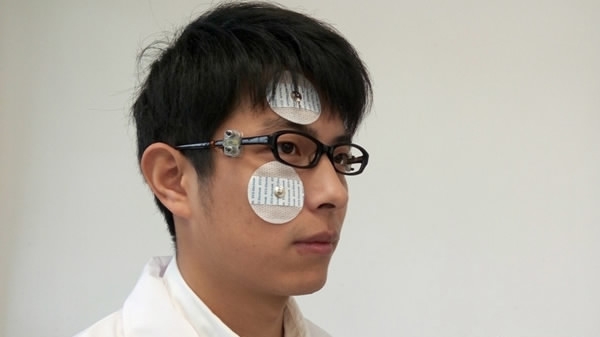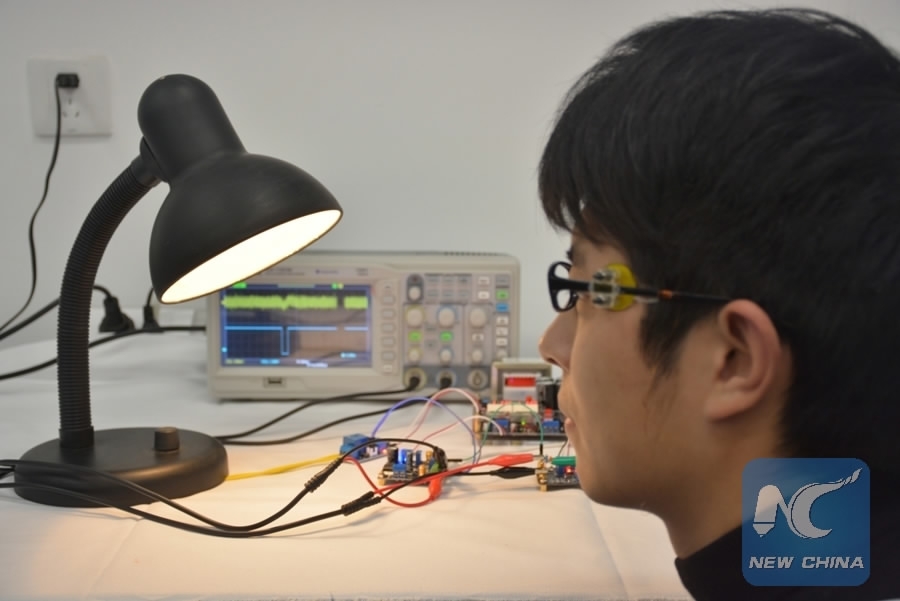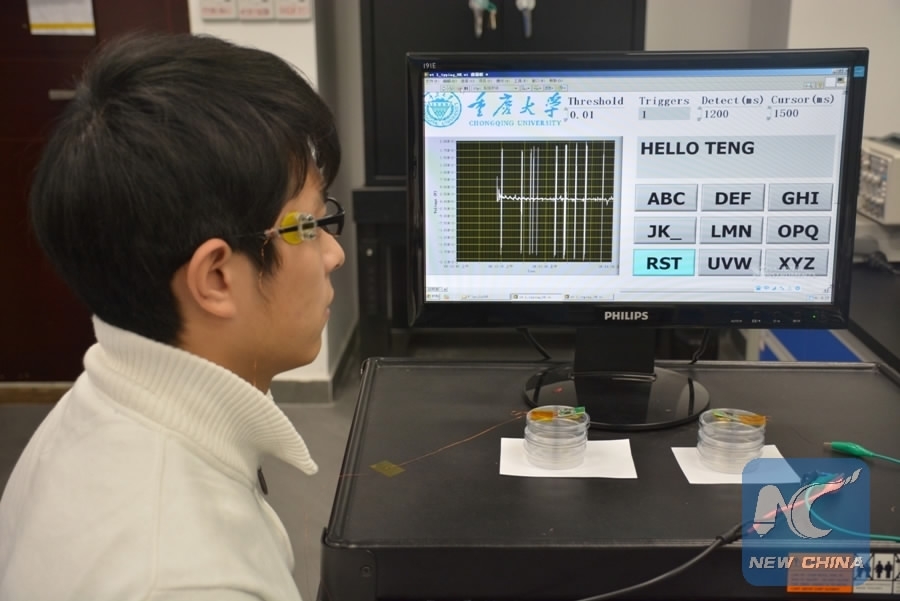
Tech & Sci
12:38, 30-Jul-2017
Sensor-equipped glasses let you do things in 'blink of an eye'

Imagine just blinking your eyes to get everything done.
Chinese researchers have designed a new sensor which, when attached to a pair of glasses, can detect the motion of an intentionally closing eye, enabling a range of hands-free tasks, including typing or turning a light on and off.
"The technique can be considered as having 'a third hand'," Professor Chenguo Hu of Chongqing University, one of the study authors, told Xinhua.
Hu said the newly designed sensor may one day help people with locked-in syndrome, amyotrophic lateral sclerosis, also known as ALS or Lou Gehrig's disease, and other disabilities, to communicate and perform everyday tasks.

Turning on a light with the sensor-equipped glasses. /Xinhua Photo via Chongqing University
Turning on a light with the sensor-equipped glasses. /Xinhua Photo via Chongqing University
Past approaches to detect eye movement have largely relied on body surface bioelectrical signals, which are very weak and unreliable, she said.
In the new study, Hu and colleagues designed a sensor based on the so-called triboelectric nanogenerator, or TENG, to detect the motion of the skin around the corners of eyes, which she said "has never been considered as a good trigger signal source."
"Compared to past approaches, the new sensors achieve impressive sensitivity in low-cost, highly adaptive devices that can be fabricated in a variety of forms," according to the study published this week in the US journal Science Advances.
Importantly, the sensor can distinguish between unintentional blinks and deliberate ones, it said.

Typing with the sensor-equipped glasses. /Xinhua Photo via Chongqing University
Typing with the sensor-equipped glasses. /Xinhua Photo via Chongqing University
When the glasses are connected to a computer screen, the wearer can blink as a cursor passes over different keys, typing out a message like "Hello TENG."
"Excellent performance of this system could be proof for the msTENG (sensor) as a supersensitive sensor to be applied in computer control," Hu's paper noted.
The researchers also designed the sensor-equipped glasses to initiate other daily tasks, such as turning a light on and off and switching on a fan.
"Our work makes it possible to get a novel design concept of controlling electronic devices via eye blinks out of the lab to become part of our daily lives," Hu added.
(Source: Xinhua)
1468km

SITEMAP
Copyright © 2018 CGTN. Beijing ICP prepared NO.16065310-3
Copyright © 2018 CGTN. Beijing ICP prepared NO.16065310-3